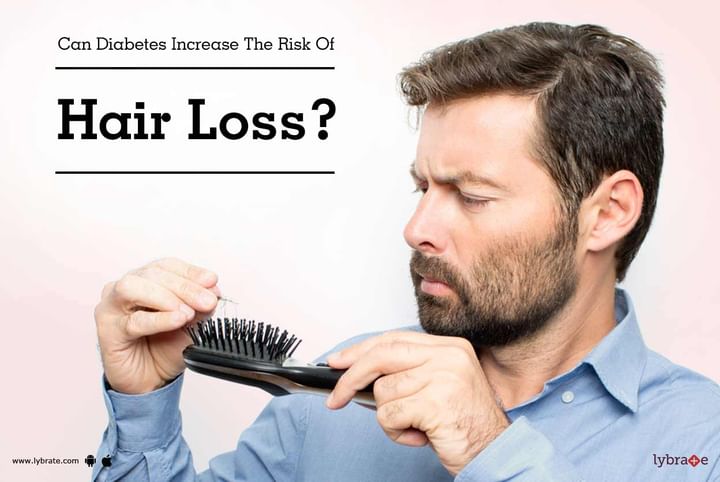Can Diabetes Increase The Risk Of Hair Loss?
Diabetes is one of the worst metabolic disorders to affect a person. The condition takes place either when the body fails to utilize the insulin produced (insulin resistance) or when there is little or no production of insulin by the beta cells of the pancreas. As a result, there is an elevated level of the blood glucose, giving rise to a plethora of health problems. From eyes to hair, diabetes affects almost all parts of the body.
Diabetes or Diabetes mellitus can be of two types- Type-1 diabetes and Type-2 diabetes.
- Type-1 Diabetes, as known as Insulin-Dependent Diabetes is an autoimmune condition. Certain factors result in the immune cells recognizing the pancreas as “Nonself” or “Foreign cells”. Thus, the immune cells produce antibodies which end up attacking the pancreas. As a result, the pancreas fails to produce the insulin. This type of diabetes is known to mostly affect a person in their childhood (Juvenile-Onset Diabetes).
- Type-2 Diabetes is one of the more common and milder types of diabetes affecting adults (Adult-Onset Diabetes). Here the pancreas does produce insulin. The problem lies in the fact that the insulin is either produced in lesser quantity or there is insulin resistance.
- In some cases, a pregnant woman may suddenly develop diabetes (Gestational Diabetes).
Diabetes and Hair Fall
Various studies and research have established a relationship between Diabetes (either type) and hair fall. There is an amalgamation of factors that may collectively contribute towards the hair fall.
- Diabetes is known to cause a hormonal imbalance. This hormonal change may interfere with the hair growth cycle resulting in hair fall.
- One of the many harmful effects of diabetes includes damaging the blood vessels. The blood vessels play a pivotal role in the proper circulation of the essential nutrients throughout the body. For a healthy hair growth, the hair follicles need the essential nutrients. The unavailability of the essential may damage the hair follicles with hair fall being inevitable.
- The physical and the emotional stress and anxiety associated with diabetes can have a deleterious effect on the hair growth.
- More than often, diabetes can give rise to thyroid problems, one of the medical conditions (untreated) that lead to hair fall (can be quite severe at times).
- Diabetes can also weaken one's immune system making the person more susceptible to various infections. Some of these infections act as catalysts disrupting the normal cycle of hair growth.
- The hair problem can also be an outcome of certain medications used by diabetic patients.
However, there is still some hope as proper care management can help to reverse the hair fall problem.
- If you are experiencing severe hair fall, consult your doctor at the earliest. Timely assessment of the problem may prove to be beneficial.
- Take care of your diet. Include foods that are known to promote a healthy hair growth (guava, almonds, walnuts, salmon, avocados, to name a few).
- Avoid stress. Meditation, yoga, or other breathing exercises can work wonders to keep you relaxed.
In case you have a concern or query you can always consult an expert & get answers to your questions!



+1.svg)
